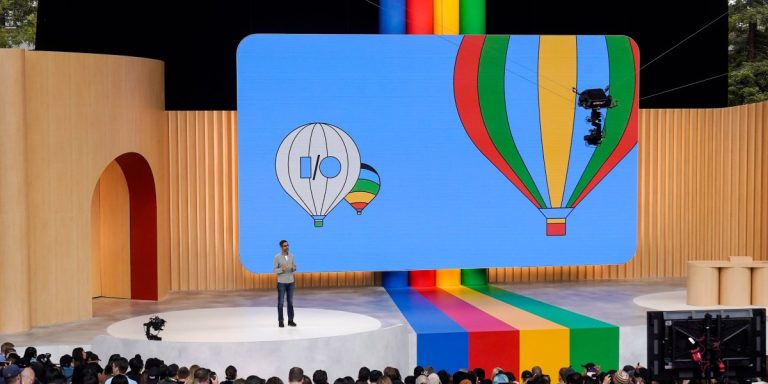Since then, its ChatGPT competitor chatbot Bard (which, chances are you’ll recall, briefly wiped $100 billion off Google’s share value when it made a factual error in the course of the demo) has been changed by the extra superior Gemini. However, for me, the AI revolution hasn’t felt like one. As a substitute, it’s been a gradual slide towards marginal effectivity positive factors. I see extra autocomplete features in my e-mail and phrase processing functions, and Google Docs now affords extra ready-made templates. They don’t seem to be groundbreaking options, however they’re additionally reassuringly inoffensive.
Google is holding its I/O convention tomorrow, Could 14, and we anticipate them to announce an entire new slew of AI options, additional embedding it into every thing it does. The corporate is tight-lipped about its bulletins, however we will make educated guesses. There was lots of hypothesis that it’ll improve its crown jewel, Search, with generative AI options that would, for instance, go behind a paywall. Maybe we are going to see Google’s model of AI brokers, a buzzy phrase that mainly means extra succesful and helpful good assistants in a position to do extra complicated duties, comparable to reserving flights and accommodations a lot as a journey agent would.
Google, regardless of having 90% of the online search market, is in a defensive place this yr. Upstarts comparable to Perplexity AI have launched their very own variations of AI-powered search to rave reviews, Microsoft’s AI-powered Bing has managed to extend its market share barely, and OpenAI is working by itself AI-powered online search function and can also be reportedly in dialog with Apple to integrate ChatGPT into smartphones.
There are some hints about what any new AI-powered search options would possibly seem like. Felix Simon, a analysis fellow on the Reuters Institute for Journalism, has been a part of the Google Search Generative Expertise trial, which is the corporate’s means of testing new merchandise on a small number of actual customers.
Final month, Simon observed that his Google searches with hyperlinks and brief snippets from on-line sources had been changed by extra detailed, neatly packaged AI-generated summaries. He was in a position to get these outcomes from queries associated to nature and well being, comparable to “Do snakes have ears?” A lot of the data provided to him was right, which was a shock, as AI language fashions generally tend to “hallucinate” (which suggests make stuff up), and so they have been criticized for being an unreliable supply of data.
To Simon’s shock, he loved the brand new characteristic. “It’s handy to ask [the AI] to get one thing offered only for you,” he says.
Simon then began utilizing the brand new AI-powered Google perform to seek for information gadgets fairly than scientific data.
For many of those queries, comparable to what occurred within the UK or Ukraine yesterday, he was merely provided hyperlinks to information sources such because the BBC and Al Jazeera. However he did handle to get the search engine to generate an outline of latest information gadgets from Germany, within the type of a bullet-pointed record of reports headlines from the day earlier than. The primary entry was about an assault on Franziska Giffey, a Berlin politician who was assaulted in a library. The AI abstract had the date of the assault improper. Nevertheless it was so near the reality that Simon didn’t suppose twice about its accuracy.
